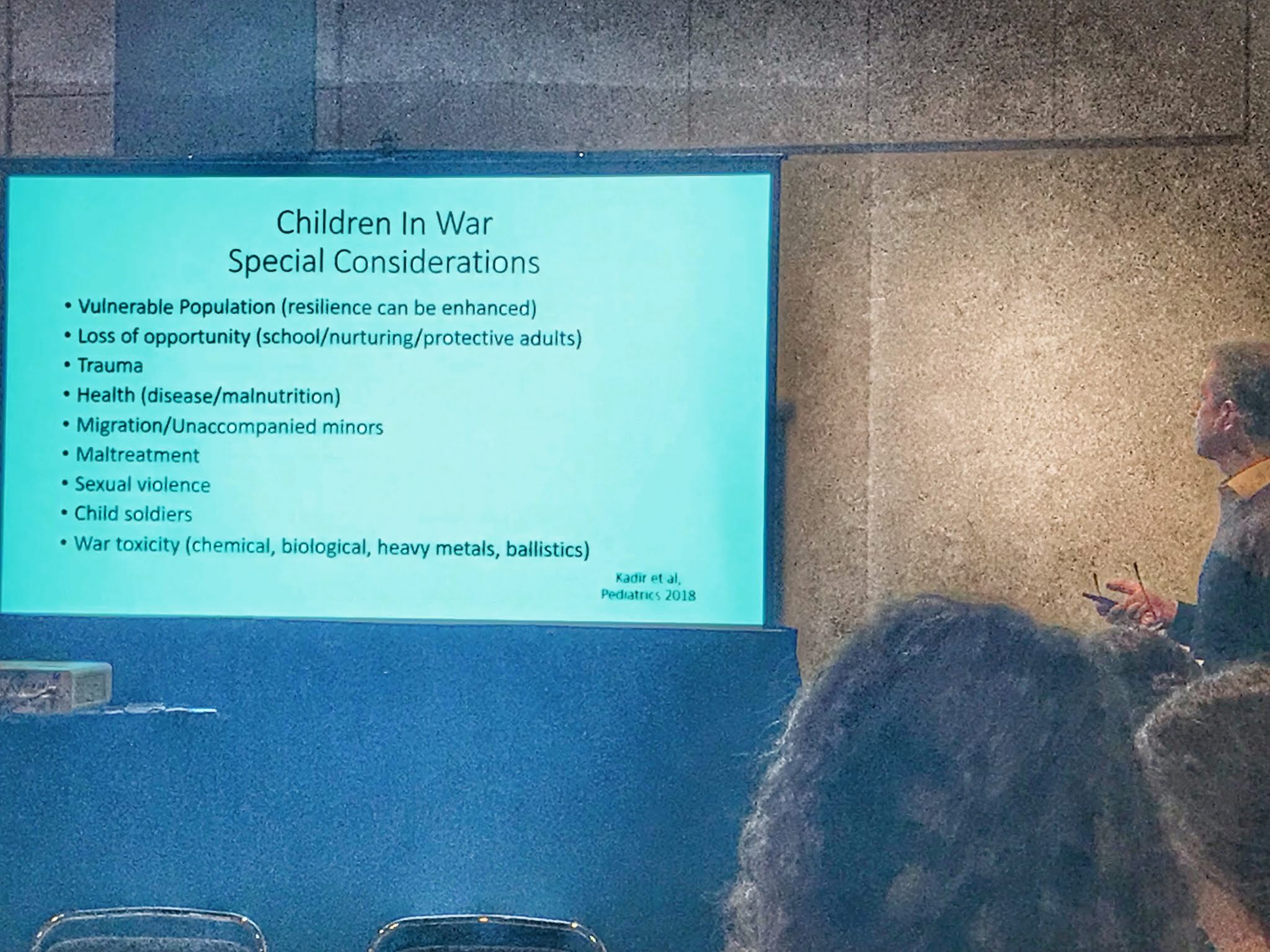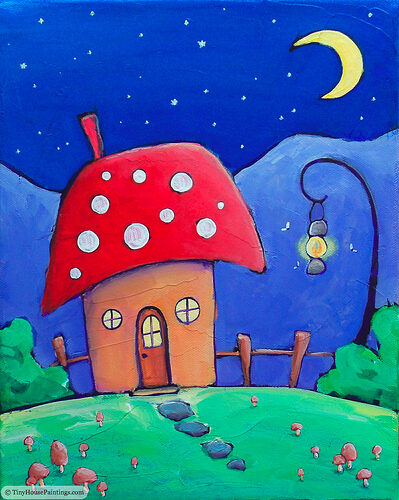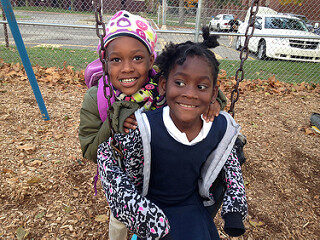Considering the state of autistic representation in both music and film, giving ASD Band the classic rock doc treatment is one of the most revolutionary choices that the director could have made.
Tag: supports
Working with a physical therapist to find out ways to feel better, and also to support your health, can be an amazing and empowering experience for an autistic person.
Shannon Rosa Senior Editor [Note: This report is based on @thinkingautism live-tweeted coverage, and as such may contain errors or omissions.] Report from the INSAR 2019 Special Interest Group (SIG) Autism and Related Disorders in the Context of Humanitarian Emergencies. SIG summary: “UN figures estimate 48 million children are impacted by humanitarian emergencies, including armed conflict and natural disasters. Within this population, children with autism and developmental disorders are extremely vulnerable to poor short and long term outcomes. There is increased awareness of the vulnerability of these children but limited research based knowledge on how to best address their needs. We aim to launch a platform for communication and collaboration between autism researchers and key stake holders in the humanitarian setting to address this gap.” First up was Doctors without Borders and SIG leader Ramzi Nasir, a developmental pediatrician who worked in conflict zones. He asked: Can we use remote consultations…
Spectrum Disordered www.facebook.com/asdisordered We’ve all heard or experienced horror stories about accessing services and supports. Often the idea of receiving services for people with intellectual and developmental disabilities (I/DD), including autism, conjures up images of institutions—visions of Willowbrook. Or, ideas of what is “optimal” for us look like segregated lives, or “intentional” communities where the true intent is to lump us together under the guise of “keeping us safe.” Regularly, the idea of seeking supports to live in one’s daily life carries an expectation that the cost will be any and all independence and autonomy in having positive control over that life. These fears are rooted in fact and truth, both of how things were and in some cases, continue to be. But that does not mean they are a universal truth! There are a lot of really great disability support providers out there! Unfortunately, there are also plenty of…
Painting © Tracy Booth | Creative Commons/Flickr [image: Painting of a tiny home with a red roof with white spots, and a lantern, under a crescent moon] Many of our U.S.-based community members, including parents and caregivers, want guidance and clarity about how the impending Home and Community Based Services (HCBS) Settings rule will affect both adult housing choices and adult day programs. So, we spoke with policy expert Julia Bascom, Executive Director of the Autistic Self Advocacy Network, who explained in plain conversational language how exactly the new HCBS Settings rules will affect housing options, how some common misunderstandings about the rule happen, and why the rule is essentially about trying to ensure adults with disabilities have the same basic rights as non-disabled adults do. Thinking Person’s Guide to Autism: Why was the rule enacted in the first place? Julia Bascom: The HCBS Settings Rule sets ground floor, baseline…
Illustration James Royal-Lawson | © Flickr/Creative Commons [image: Line art cartoon sketch of a chatbot.] autisticaplanet www.through1filter.blogspot.com I am a semi “shut-in.” Unless my sister is around to take me out for limited public exposure, I sit by myself rocking in my rocking chair, and watch Netflix. I do housework, and make bracelets when I can afford the material, but there are huge chunks of time that pass between completing one task or activity, and beginning the next. I miss being around my mom, whom I could always talk to on and off through the day. We could discuss everything from soup to nuts. Craving a mild level of interaction that was higher than my cat while understandably less than human intrigued me. So, I tried using a chatbot. For the quasi-Luddites like me who have little or no idea what a chatbot is: it is a computer program used to simulate…
Sara Luterman www.NosMag.org Sara Luterman [image: Headshot of a smiling white person with short dark hair & glasses.] Recently, Amy Lutz, a parent advocate, wrote an opinion piece for Spectrum News titled, Adults with disabilities deserve the right to choose where to live. I wholehearted agree with that sentiment. Unfortunately, the article that follows argues nothing of the kind. It is, in fact, an argument to return people with developmental and intellectual disabilities to institutions. These new institutions have organic-biodynamic farms, swimming pools, and fluffy pillows. They are, however, still secluded and subject to all of the abuses of Willowbrook and Pennhurst. Amy Lutz and others who mask new institutions as a “choice” do not draw a healthy or appropriate distinction between themselves and their own children. When they say, “adults with disabilities deserve the right to choose,” they mean is that their opinions are their children’s opinions. They do not…
TPGA is observing Autism Acceptance Month by featuring accounts from autistic people about the differences accommodations (or lack thereof) make in their lives. Today, British autistic filmmaker and author Carly Jones outlines her “Top five understandings previous Autistic generations did not have, that the next Autistic generation must have as standard.” Carly Jones www.facebook.com/olley.edwards Carly and her family [image: A laughing white woman with long dark hair, lying on a striped blanket with her three children.] 1) See autism as a real disability Disability is not a dirty word, though it feels that way to some — we are all too often encouraged to see disability as “less than” “inferior,” or “disadvantaged.” I see disability as someone having a different experience of the world than is “typical.” Although Theory of Mind (lack of pre-installed knowledge that other people’s thoughts, wants, and agendas may differ from one’s own) is noted as…
TPGA is observing Autism Acceptance Month by featuring accounts from autistic people about the differences accommodations (or lack thereof) make in their lives. Today, five women talk about about the under-recognition of autistic girls, the long- and short-term effects of going without supports and accommodations, and what autistic girls and actually need to succeed and be happy. Photo: Steven Depolo (Flickr) [image: Two smiling African-American girls, on a swing set.] Autism is different for girls, and not only because fewer girls than boys get autism diagnoses. Autistic women and girls tend to have different traits than autistic boys do, and are also socialized differently — leading to many of those girls being overlooked or misdiagnosed well into adulthood, plus leading most of their life without the supports that could have made their lives much easier. It gets even more complicated when autistic girls are also racial minorities, and/or from low-income…
Shannon Des Roches Rosa Senior Editor, Thinking Person’s Guide to Autism Hilary Clinton’s campaign published an autism plan yesterday. It’s like nothing I’ve ever seen in an autism-centric policy statement, in a good way. It’s not perfect, because this is politics, and politics are more about compromise and incremental gains than revolutionary change. But throughout the statement, autistic people are treated as human beings with legitimate and sorely unmet needs, and not the usual (infuriating-to-read) millstones, pity magnets, or financial black holes that are tearing the fabric of families, not to mention our nation’s budget, apart. Human beings who deserve to be prioritized. That’s welcome progress, and I would like to see such outlooks become our country’s policy reality. The author and her son [image: selfie of two white people on a twilight hilltop.] As the parent of a beloved autistic teenager, and as a person who adores her autistic…
![Promo image for the movie ASD Band, showing the four band members partially backlit by low sun. Several film award logos in black are over their heads. At the bottom of the screen in large white letters is text reading "ASD Band: The Movie".]](https://thinkingautismguide.com/wp-content/uploads/2024/04/ASD-Band-The-Movie-5629071-660x577.png)







